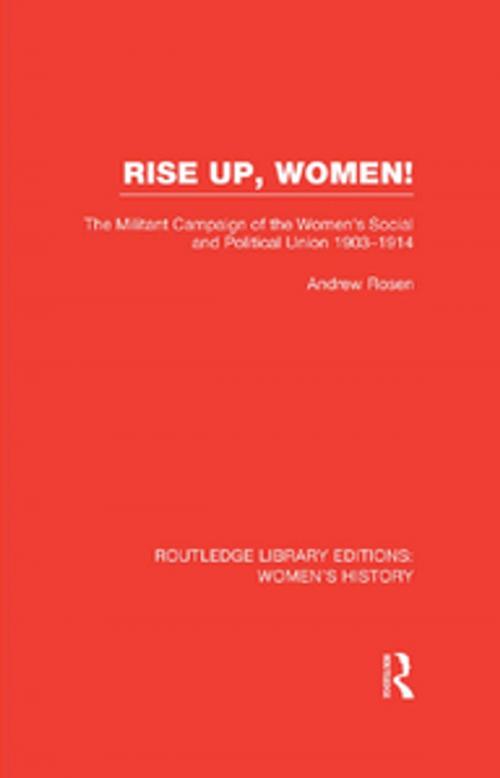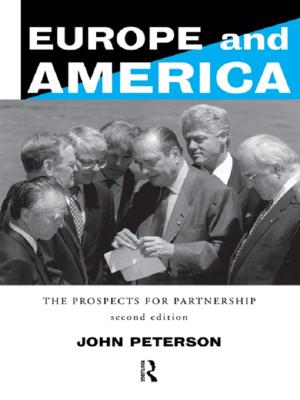Rise Up, Women!
The Militant Campaign of the Women's Social and Political Union, 1903-1914
Nonfiction, History, Modern, 20th Century, Reference & Language, Reference| Author: | Andrew Rosen | ISBN: | 9781136247545 |
| Publisher: | Taylor and Francis | Publication: | January 17, 2013 |
| Imprint: | Routledge | Language: | English |
| Author: | Andrew Rosen |
| ISBN: | 9781136247545 |
| Publisher: | Taylor and Francis |
| Publication: | January 17, 2013 |
| Imprint: | Routledge |
| Language: | English |
The suffragette movement shattered the domestic tranquillity of Edwardian England. This book is an original and searching study of the formidable organization which led this campaign: the Women’s Social and Political Union.
With the use of previously unpublished correspondence of Mrs Emmeline Pankhurst, her colleagues and such political leaders as Asquith, Balfour and Lloyd George, the author views the development of ever more extreme and violent forms of militancy not as a series of amusing exploits and incidents but as the carefully calculated political strategy the suffragettes intended it to be. He examines the reasons for the remarkable effectiveness of militant tactics in making women’s enfranchisement a political issue of central importance, and shows why militancy failed to secure this right prior to the outbreak of war in August 1914. He assesses, too, the influence of the vast social and political changes wrought by the war on the ultimate success of the campaign in 1918.
The suffragette movement shattered the domestic tranquillity of Edwardian England. This book is an original and searching study of the formidable organization which led this campaign: the Women’s Social and Political Union.
With the use of previously unpublished correspondence of Mrs Emmeline Pankhurst, her colleagues and such political leaders as Asquith, Balfour and Lloyd George, the author views the development of ever more extreme and violent forms of militancy not as a series of amusing exploits and incidents but as the carefully calculated political strategy the suffragettes intended it to be. He examines the reasons for the remarkable effectiveness of militant tactics in making women’s enfranchisement a political issue of central importance, and shows why militancy failed to secure this right prior to the outbreak of war in August 1914. He assesses, too, the influence of the vast social and political changes wrought by the war on the ultimate success of the campaign in 1918.















